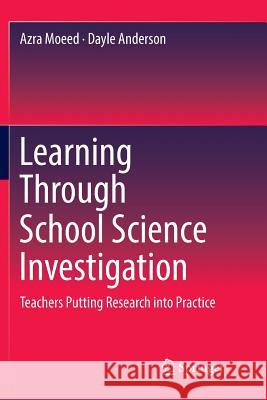Learning Through School Science Investigation: Teachers Putting Research Into Practice » książka
topmenu
Learning Through School Science Investigation: Teachers Putting Research Into Practice
ISBN-13: 9789811346552 / Angielski / Miękka / 2019 / 140 str.
Kategorie:
Kategorie BISAC:
Wydawca:
Springer
Seria wydawnicza:
Język:
Angielski
ISBN-13:
9789811346552
Rok wydania:
2019
Dostępne języki:
Numer serii:
000418478
Ilość stron:
140
Waga:
0.23 kg
Wymiary:
23.39 x 15.6 x 0.86
Oprawa:
Miękka
Dodatkowe informacje:
Wydanie ilustrowane











